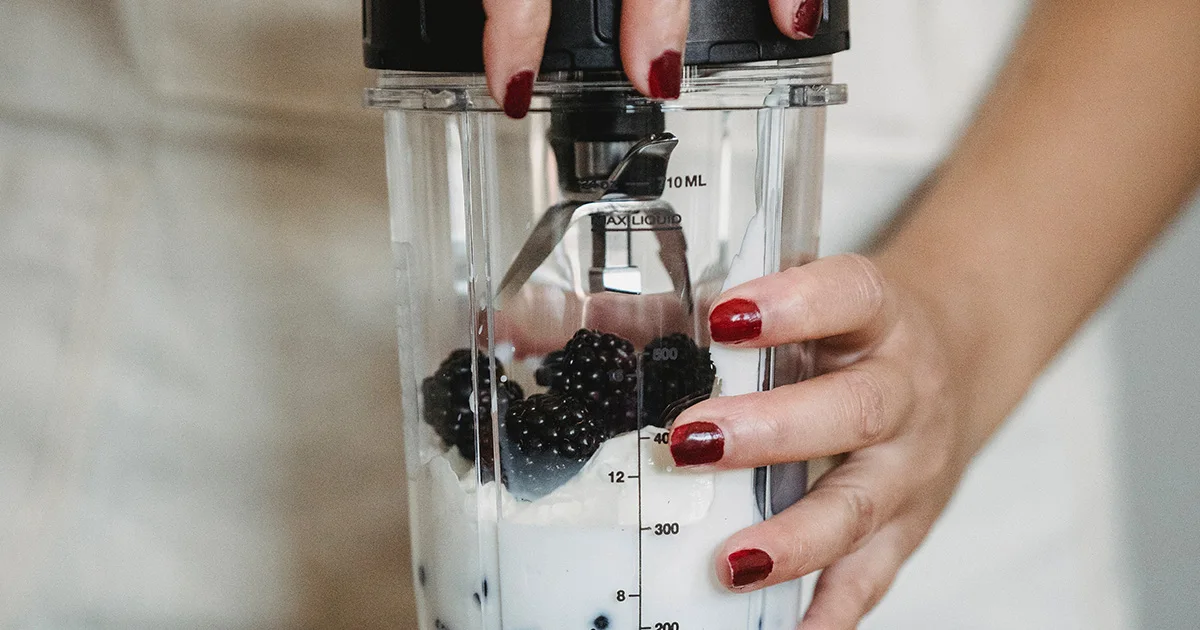Here's what we'll cover
Here's what we'll cover
How many of us have had a large bowel movement and then immediately ran to the scale to weigh ourselves? You see what’s in the toilet and think it must weigh a few ounces, if not pounds! Similarly, you might wonder if a colon cleanse can help you lose weight.
Let’s find out what the colon does, what a colon cleanse is, and if it's a safe way to lose weight and detox.
What’s the job of the colon?
Your digestive or gastrointestinal system breaks down and absorbs food to give your body the energy it needs.
The digestive tract starts at the mouth and continues through the esophagus to the stomach and then the small and large intestines. Your digestive system also excretes waste products from your food, drink, and medication intake. The excretion process involves the large intestine, also called the colon, ending at the rectum (Ogobuiro, 2021).

Your large intestine is about six feet long. Trillions of bacteria living in your colon form the microbiome. They perform many essential functions. One of the main jobs is to break down the food you eat. Your colon also absorbs electrolytes, water, and some nutrients, including vitamin K and other fat-soluble vitamins (Ogobuiro, 2021).
The digested food keeps moving through the colon to the end, called the rectum. Your rectum has special stretch receptors whose job is to give you the signal to have a bowel movement.
Your digestive system's microbiome is also an essential part of your immune system and overall health. It influences how your body responds to your diet and can affect the development of disorders such as chronic constipation to colorectal cancer (Hills, 2019).
What you eat and how you deal with stress can affect your microbiome and your digestive health. Some people may feel that detoxification or a colon cleanse can jump-start their weight loss or improve their overall health, but is this a healthy thing to do?
Is it good to do a colon cleanse?
Your colon naturally clears itself, though it takes as long as three days for your body to digest the food you eat and excrete it fully. This journey (called transit time) allows your food to be thoroughly digested, with all the protein, carbohydrates, fats, water, vitamins, and minerals extracted, used, or stored (Mawer, 2019).
Some people may have gastrointestinal symptoms if their bowel transit time is affected. These can include (Mawer, 2019):
Diarrhea
Constipation
Nausea and vomiting
Abdominal pain and cramping
Several conditions can affect how quickly food moves through the digestive tract (Mawer, 2019):
Gastroparesis: your transit time is slow, and your stomach takes too long to empty
Irritable bowel syndrome or irritable bowel disease
Chronic constipation
Dyspepsia where your stomach feels full even though it’s not
People who experience constipation may believe a natural colon cleanse is right for them. Constipation means not going to the bathroom often enough—about three or fewer times per week. Because water is absorbed in the colon, the longer the waste stays in the colon, the more water gets absorbed. More water absorption in the colon means less water in the stool, making the stool harder to pass. Some people strain when having a bowel movement, which can cause hemorrhoids and bleeding (Diaz, 2020).
However, being constipated can come from many different causes. For some people, it could be that they're not eating enough fiber, drinking enough water, or that they're using certain medicines. Other people have used laxatives for years for weight loss. Their colon slows down because it has gotten used to relying on the laxatives (Diaz, 2020).
If you've ever had a colonoscopy, you know that you have to do a colon cleansing before the procedure. Colonoscopy prep involves taking special laxatives to clear the colon of any material. Although most people say the preparation for a colonoscopy is the worst part of the procedure, many also positively note how light they felt after the colon cleanse. However, these sorts of colon cleanses are done under medical supervision and for an intended medical purpose. Healthcare professionals do not recommend doing them regularly.
How do you do a colon cleanse?
The entire digestive system is connected from the mouth through the rectum. Colon cleanses can either start from the mouth downward or focus directly on the colon itself.
Oral cleanses include juice cleanses, laxatives, and weight loss herbal teas
Rectal cleanses include enemas and colonic hydrotherapy/irrigation
Oral cleanses
Some alternative and complementary medical practitioners believe that people need regular colon cleanses or detoxes for health and wellness. Most recommend juice cleanses or juice fasts made up of fresh fruit and vegetable juices, with no solid food. They may advise people to drink hot water and lemon juice to start the day, avoiding caffeine. They claim that juice cleanses make it easier for your digestive enzymes to work more efficiently. They recommend drinking apple cider vinegar (a mild acid) to jump-start the detox (Cassileth, 2010).
Others may believe that laxatives and herbal weight loss teas can help them lose weight. There are several types of laxatives with different mechanisms of action (Bashir, 2020):
Bulk-forming—These include dietary fiber and psyllium. They keep fluid in the stool, making it easier to have a bowel movement. You must drink a lot of water with this type of laxative. If you don’t, it can lead to bloating and possible bowel obstruction. Even with regular use, it can cause nausea, vomiting, diarrhea, and bloating.
Stimulant laxatives—These increase and speed up intestinal movement and decrease water absorption in the colon. Stimulant laxatives can include bisacodyl, sodium picosulfate, senna, and cascara. Many diet weight loss herbal teas have senna and cascara, which can cause abdominal pain and cramping.
Osmotic agents—These also draw water into the colon and include milk of magnesia and lactulose. People with heart disease and kidney issues should only use these laxatives under medical supervision.
Other laxatives include lubricants and surface-active agents with water and fats entering the stool to help ease the stool out.
Rectal cleanses
Some people want to have faster results and go to the “source.” They go directly to the colon for their cleanses.
Enemas, especially coffee enemas, were touted by Max Gerson, a physician in the 1930s. He believed these could help clear out the colon and provide stimulation from coffee at the same time. Many alternative health practitioners continue to recommend these enemas today with claims that they cure various illnesses, even cancer. There's no evidence of this. Other types of enemas include water-based enemas usually used to help constipation. You can find this type of enema at many drugstores. They may contain mineral oil, sodium, phosphate, or bisacodyl (Cassileth, 2010).
The average enema contains 5–7 ounces of fluid, and you generally do it at home by yourself. You can buy prepackaged, one-time-use, disposable enemas in any major retailer that sells over-the-counter health and beauty aids. A popular brand is Fleet. You can also purchase a rubber-style bag with a tube either at a drug store or online. You can use the bag multiple times, just don't with anyone else. When recommended by a healthcare provider, you'll usually do an enema once per day. Enemas only affect the bottom part of your colon.
Colonic irrigation or colonic hydrotherapy, also called a colonic, is where a tube flushes the colon with a lot of fluid. A colonic is a bit different from an enema.
A colonic hygienist can administer colon hydrotherapy, using about 60 liters of fluid. A tube containing the liquid goes up your rectum, and the waste goes out through a different tube. Then, the process is repeated. The whole process takes about 45 minutes to an hour and can go up higher in the colon than an at-home enema can.
Is colon cleansing safe, and does it help you lose weight?
Proponents of colon cleansing claim that this practice has multiple health benefits and can help many different symptoms. They claim it can help with allergies, depression, fatigue, skin conditions, sinus issues, digestion problems, the immune system, and weight loss. There's little evidence to support most of these claims, and many of the methods of colon cleansing we've discussed come with some serious risks.
Juice cleanses
Juice cleanses may help you lose a little weight. This weight loss may be due to the calorie restriction of little to no solid food allowed while on a juice cleanse. Incorporating fresh fruits and vegetables into your diet is always recommended. Still, healthcare professionals don't usually recommend juice cleanses for weight loss. Research on juice cleanses shows the weight loss is not sustainable. Some people with pre-existing medical conditions, specifically kidney conditions, should not do juice cleanses (Hyson, 2015).
Laxatives
Some people use laxatives, enemas, and other methods of colon cleansing to lose weight. However, you only lose about 12% of your entire caloric intake from laxative use. That's not a lot! Calories are primarily absorbed in the small intestine. Most colon cleansing products work on the large intestine or colon, making them poorly effective at impacting your calorie intake (Sato, 2015).
People who frequently use laxatives can have chronic diarrhea, which can drop their potassium levels and cause an electrolyte imbalance. Laxative abuse can lead to feeling exhausted and very dehydrated. If your potassium lowers enough, it can cause heart rhythm changes, low blood pressure, feeling dizzy when you stand up, and fainting (Sato, 2015).
Enemas
Coffee and hydrogen peroxide enemas can cause colon damage. There are reports of permanent damage, including burns, ulcers, rectal tears, colon strictures, and sepsis (widespread body infection). These can be medical emergencies requiring hospitalization and surgery. In some cases, it may lead to death (Orosey, 2017, Lee, 2020).
Colonic irrigation
Colonic hydrotherapy or colonic irrigation also has risks. Just like with laxatives, colonic irrigation can also cause dehydration and electrolyte imbalance. Some people’s kidneys can be severely affected by an electrolyte balance (Sato, 2015).
Colonic irrigation requires stringent hygiene for the environment, tools, instruments, and fluids used. Colonic facilities are not regulated, and some practitioners may introduce harmful bacteria into your colon and lower bowel. This can create an infection in the colon or throughout the entire body. Sometimes, the rush of fluid from the colonic irrigation can wash out healthy gut bacteria from your colon (Dore, 2015).
The most dangerous risk of colonic hydrotherapy is bowel perforation, when the tubes from the colonic therapy tear a hole in the intestine. Symptoms of a bowel perforation include pain, fever and chills, and nausea. Bowel perforation is an emergency and can cause death (Jones, 2021).
Choose a safer approach to weight loss
Some say colonics and enemas improve your health by detoxing you, emptying your bowels, helping your digestion, and making you lose weight. There is very little scientific evidence to support those claims. Also, they can be dangerous for some people. Specifically, they can be dangerous for people who suffer from any digestive disorder (like ulcerative colitis, Crohn's disease, diverticulitis, gastrointestinal or colon cancer, or if you recently had colon surgery) (Acosta, 2009).
There are better approaches for sustainable and healthy weight loss. Eat more fruits and vegetables, increase your fiber and water intake, get 6–8 hours of restorative sleep at night, and exercise at least 150 minutes per week. A healthy lifestyle leads to a healthier digestive system!
DISCLAIMER
If you have any medical questions or concerns, please talk to your healthcare provider. The articles on Health Guide are underpinned by peer-reviewed research and information drawn from medical societies and governmental agencies. However, they are not a substitute for professional medical advice, diagnosis, or treatment.
Acosta, R. D., & Cash, B. D. (2009). Clinical effects of colonic cleansing for general health promotion: a systematic review. American Journal of Gastroenterology, 104 (11), 2830-2836. doi: 10.1038/ajg.2009.494. Retrieved from https://pubmed.ncbi.nlm.nih.gov/19724266/
Bashir, A., & Sizar, O. (2020). Laxatives. StatPearls [Internet]. Retrieved from https://www.ncbi.nlm.nih.gov/books/NBK537246/
Cassileth, B. (2010). Gerson regimen. Oncology (Williston Park, NY), 24 (2), 201-201. Retrieved from https://europepmc.org/article/med/20361473
Diaz, S., Bittar, K., (2020). Constipation. StatPearls [Internet]. Retrieved from https://www.statpearls.com/ArticleLibrary/viewarticle/19913
Dore, M., & Gleeson, T. (2015). Escherichia coli septic shock following colonic hydrotherapy. The American Journal of Medicine, 128 (10), e31. doi: 10.1016/j.amjmed.2015.05.032. Retrieved from https://www.amjmed.com/article/S0002-9343(15)00516-1/pdf
Hills RD Jr, Pontefract BA, Mishcon HR, Black CA, Sutton SC, Theberge CR. (2019). Gut microbiome: profound implications for diet and disease. Nutrients, 11 (7):1613. doi: 10.3390/nu11071613. Retrieved from https://pubmed.ncbi.nlm.nih.gov/31315227/
Hyson, D. A. (2015). A review and critical analysis of the scientific literature related to 100% fruit juice and human health. Advances in Nutrition, 6 (1), 37-51. doi: 10.3945/an.114.005728. Retrieved from https://academic.oup.com/advances/article/6/1/37/4558026
Jones, M. W., Kashyap, S., & Zabbo, C. P. (2021). Bowel perforation. StatPearls [Internet]. Retrieved from https://www.ncbi.nlm.nih.gov/books/NBK537224/
Lee, A. H., Kabashneh, S., Tsouvalas, C. P., Rahim, U., Khan, M. Y., Anees, M., & Levine, D. (2020). Proctocolitis from coffee enema. ACG Case Reports Journal, 7 (1). doi: 10.14309/crj.0000000000000292. Retrieved from https://www.ncbi.nlm.nih.gov/pmc/articles/PMC7145153/
Mawer, S., & Alhawaj, A. F. (2019). Physiology, defecation. StatPearls [Internet]. Retrieved from https://www.statpearls.com/ArticleLibrary/viewarticle/813
Ogobuiro, I., Gonzales, J. (2020). Physiology, gastrointestinal. Statpearls . Retrieved from https://www.statpearls.com/ArticleLibrary/viewarticle/22066
Orosey, M., RamiReddy, S., Mogrovejo, E., & Cappell, M. S. (2017). Two cases of colonic injury secondary to coffee or dilute hydrogen peroxide enemas: colonoscopic and radiologic findings: 1528. Official Journal of the American College of Gastroenterology ACG, 112 , S836-S837. Retrieved from https://journals.lww.com/ajg/Fulltext/2017/10001/Two_Cases_of_Colonic_Injury_Secondary_to_Coffee_or.1529.aspx
Sato, Y., & Fukudo, S. (2015). Gastrointestinal symptoms and disorders in patients with eating disorders. Clinical Journal of Gastroenterology, 8 (5), 255-263. doi: 10.1007/s12328-015-0611-x. Retrieved from https://link.springer.com/article/10.1007/s12328-015-0611-x#citeas












